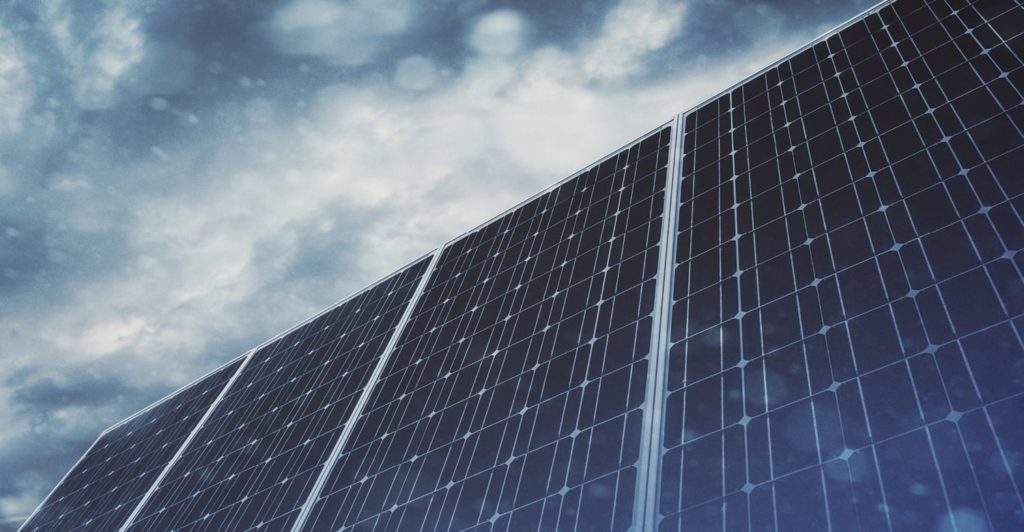There is a lot of information available about solar power. But amazingly, a lot of that information is complete bunk. Thankfully, if you’re armed with the right information, it’s easy to separate the solar power facts from the myths. Knowledge is power, and when you understand the facts about solar power you’ll be able to make a well-informed choice about whether solar is right for you.
Zero down financing options offered by Freedom Forever

Solar power myths debunked
Myth: Solar panels power your home.
Fact: Most solar systems don’t power your home. Instead, they feed all the power they generate directly into the grid. The reason solar can cut your utility bill is that it generates enough power to offset the amount of power you draw from the grid to power your home. The goal of a grid-tied solar system is to net-meter-out your energy usage. In other words, you sell as much or more power to the utility company to cover your power usage. Solar panels only provide power to your home if your system includes batteries or if you have a special kind of inverter called a Sunny Boy.
Myth: Solar panels don’t work well in cold climates
Fact: Solar panels lose efficiency when they get hot because of internal electrical resistance. Solar panels in a cool climate can work just well as panels in a warmer climate because they run cooler. Even for homes in a hot climate, the loss of efficiency can be minimized by choosing solar panels designed to retain efficiency in higher temperatures. Most high-end solar panels are designed to maintain performance at higher temperatures.
Myth: Solar panels power your home during a blackout
Fact: In the event of a blackout, your solar system will not power your house unless you either have home batteries, a Sunny Boy inverter, or both. During blackouts, your solar system will isolate itself from the grid to avoid energizing power lines. This is to avoid electrocuting electrical line workers.
Savings from solar myths debunked
Myth: You won’t get a bill from the utility company after going solar
Fact: Yes, homeowners continue to receive utility bills after going solar. Many utility companies levy non-bypassable charges on their ratepayers. A non-bypassable charge is a fee charged by a utility company for some purpose. For example, San Diego Gas and Electric charges a non-bypassable fee to all its customers for the decommissioning of the San Onofre nuclear reactor station.
Myth: You won’t have to pay the utility company for power after going solar
Fact: If a house uses more power than the solar system produces, the homeowner must still pay the utility company for that excess usage. For homes on Time-of-Use billing, the time of day the power is used could affect the bill too. Homeowners should try to minimize your power usage during peak-rate billing hours. Strong consideration should also be given to installing home batteries that can power the home during peak rate hours and in blackouts.
Solar power facts
Now that the solar myths are out of the way, let’s look at the facts about solar energy.
Fact: Solar systems can add value to your home
What you need to know: Going solar could add value to a home, but there are a few things to understand. First, the amount of value that a solar system can add to a home depends on the size of the system, where the home is located, and the state of the real estate market itself.
Your neighborhood. The neighborhood your home is located in effects the amount of value solar power adds to your home. Generally, if you live in an area where there are lots of pro-environment people, solar will make your home more desirable.
The size of your system. Obviously, the more power a system generates, the more valuable it is. It’s a smart idea to get the biggest system you can when going solar as it will add the most value to your home.
Fact: You can zero-out your utility bill if you cut your energy usage
As mentioned before, you’ll still get a bill from your utility company after going solar. Then, at the end of the year, your utility company will send you a true-up bill. If you used less power than you consumed you would receive a check for the excess energy you sold the utility company. Remember that if you are served with Time-of-Use billing, you’ll also need to minimize your energy usage during peak rate hours. So you’ll still get a bill each month, but if you save more energy than you use you’ll break even (or better) at the end of the year when you true-up with the utility company.
Fact: Solar power can power your home during a blackout
Solar can provide power to a home if it is connected to home batteries. Batteries can provide power from a solar system to power critical circuits in the home during the day and charge the batteries so there is still some power at night. Keep in mind that there won’t be as much power available as ordinarily there would be when the grid is functioning normally. The homeowner should decide which circuits in the home are most important and provide power to those circuits.
Freedom Forever can help you sort out the solar power facts and myths
There’s a lot to learn when going solar. Watch out for those myths about solar power that can sabotage your solar savings. Freedom Forever stands ready to help you with comprehensive information about going solar. Our helpful family of independent authorized dealers are experts on the facts of going solar in your community. All you have to do is request a quote.
